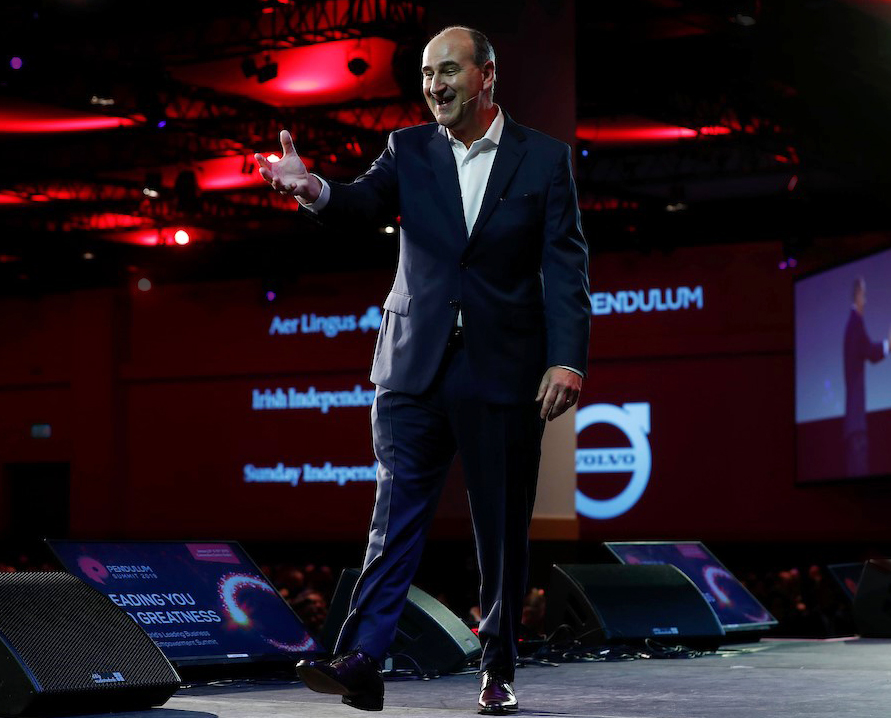THE WORLD’S #1 EXECUTIVE COACHING AND BUSINESS COACHING BLOG SINCE 2017.
The 4 Stages of an Executive Coaching Intervention
June 20, 2024 | Category: Blog, Executive Coaching | Last updated on: March 12, 2025

Great leadership is the key to a growing and prosperous organization. We rely on leaders to provide a clear vision and strategic goals to bring the company’s mission to life. Leaders are role models who set high yet achievable goals and then surpass those goals to reach even higher.
Leadership and company culture are intertwined. They set the precedent for how the company will develop over time and what values the organization will uphold. Leaders set the tone, and employees follow suit.
How Leadership and Company Culture Intertwine
- Leaders are Value Role Models: Leaders set the tone for company culture with their actions and attitudes. As role models, they serve as a blueprint for how the employees conduct themselves and what kind of norms become part of the organization
- Leaders drive cultural change: Effective and competent leaders create cultural transformations that align with the company’s mission and vision. A competent leader must be able to motivate and inspire team members to contribute to a larger whole. Executive coaches can play an important role in building a healthy culture.
- Communication and Trust: By encouraging open, honest, and consistent communication, leaders can create a positive and rewarding company culture. This is achieved by building trust and mutual respect. Without open communication, problems can arise that stunt growth and, in the worst scenarios, lead to a collapse of the business if the culture is too severely impacted.
- Employee Engagement and Morale: Leaders shape the work environment by impacting employee engagement and morale. Teams with positive attitudes create more profits and happier customers. Compassionate leaders with a supportive leadership style enhance employee job satisfaction and consequently create a positive cultural environment.
Leadership Development
Company culture is the key to consistent organizational success. We have established that leaders are where the culture is born and sustained. This is why the company’s education and training policies play such a vital role. By shaping effective leadership and investing in leadership development, organizations enhance the capabilities of their current leaders and ensure cultural alignment and a motivated workforce.
Growing businesses are searching for leaders who will bring the company to the top of their industry. Executive coaching is one of the most popular techniques for managers and executives to improve their skills and create a larger impact within their organization.
Today, there is often a large gap between what we expect from executives and what’s available to help them develop the attributes and skills necessary for meeting all the expectations placed on them.
Executive Coaches Bridge the Gap
Executive coaching is designed to bridge that gap, yet only around one-third of organizations use it to develop people for executive roles.
Around half use executive coaching for senior leaders, VP-level executives, and above, but most organizations continue to rely upon custom training and developmental job assignments as the foundation of their leadership development approach.
Executives may know what’s expected of them, but they may be unsure of the best way to meet those expectations.
Executive Coaching Definition
The International Coaching Federation (ICF) defines coaching as “partnering with clients in a thought-provoking and creative process that inspires them to maximize their personal and professional potential.”
A coach assists the client in enhancing their self-awareness, helping them establish meaningful goals that motivate them to become better, helping them achieve these goals faster and more efficiently, and also encouraging and helping them improve in areas where the coachee feels they would like to work on.
What is Executive Coaching?
Executive coaching focuses on enhancing the leadership skills of executives, senior managers, or other key leaders.
The transformative power of executive coaching lies in effecting change in leaders so they can navigate the complex business world, build effective teams and surpass organizational objectives.
The main areas of work for executive coaches are:
- Developing leadership abilities: Executive coaching helps leaders develop skills such as strategic thinking, critical thinking, decision-making, and other outer-core competencies through coaching sessions.
- Identifying and Addressing Skill Gaps: The right executive coach can pinpoint areas for improvement and work with the leader to overcome the deficiencies.
- Providing Practical Tools: The executive coach should equip leaders with the tools and strategies needed to achieve their professional and, oftentimes also, personal goals.
To achieve the coachee’s goals, the executive coach uses the power of conversation to guide the leader to new levels of self-awareness regarding their inner core dimensions such as character, values, self-concept, or beliefs and, in this way, unlock the leader’s potential.
Individual coaching engagements involve a confidential relationship. A coach usually follows ethical guidelines that prevent him from sharing the details of coaching conversations.
Executive coaches can help develop mature leaders who serve as role models with their honesty, integrity, strategic thinking, and problem-solving abilities. These leaders are the core of a thriving organization.
Regular communication between coach and client is crucial for executive coaching success.
Coaching, Team Coaching, Teaching or Mentoring?
Executive coaches aim for self-awareness in the leader. The executive coach is not a teacher or psychologist for the leader but a mentor, perhaps an advisor, but definitely an agent of transformation.
A leadership coach connects with the coachee on a human level, becoming his confidant and empowering them to become a more empathetic and effective leader. A leader who is able to deliver results through effective team leadership and clear communication.
Business Coaching vs Executive Coaching
Executive coaching focuses on enhancing the leadership capabilities of decision-makers within an organization. While executive coaching can impact the whole organization, it differs substantially from business coaching. Business coaching aims to optimize the company processes, find bottlenecks to further growth, and eliminate inefficiencies.
A business coach can also offer executive coaching services, but the scope of work will differ depending on the engagement.
Professional coaches usually offer multiple coaching solutions, such as performance coaching, executive coaching, business coaching, and others.
Coaches come from diverse backgrounds and offer different coaching experiences. They all offer an external perspective to an organization, which can be very beneficial.
Coaches should always offer proven methodologies to ensure the continued success of the business and its key stakeholders.
Coaching for the Inner- and Outer-core
As an executive coach, I help clients refine their inner core personal attributes and apply their newfound wisdom to their external leadership style.
Without high levels of courage, loyalty, modesty, and diligence, a leader will not be able to face challenges and failures that will occur in their career from time to time.
However, an intelligent leader is able to handle setbacks and difficult situations and maintain their effectiveness in the face of uncertainty.
Goals of Executive Coaching
Setting goals is one of the most important parts of leadership coaching. Which skills do you aim to improve? Before the relationship with your executive coach starts, you need to ensure you are working towards a common objective.
The metrics of a successful executive coaching relationship have to be properly set in place so that the results of the engagement can be measured. If the executive coach you chose doesn’t have a way to measure the effects of the cooperation, you should consider your choice.
In general, we can divide the goals of executive education into 6 pillars:
1. Driving Inner and Outer Core Transformation & Alignment
The aim of executive coaching is to induce change. This is done by driving change in behavior, attitudes, and motivation. The level of self-awareness of the leader has to be increased.
2. Enhancing Leadership Capabilities
The Executive Coaching relationship needs to address the gaps in the leadership skills of the leader. After the end of the coaching relationship, the leader’s decision-making, conflict resolution, and emotional intelligence must be improved. The new skills will help the leader to harness his strengths and mitigate his weaknesses.
3. Goal Development and Achievement
An intelligent leader thinks differently and thinks big. Executive coaches assist leaders in crafting goals that inspire those around them and even wider.
4. Boosting Self-Understanding and Emotional Insight
Self-awareness is an essential leadership trait. A leader’s sense of self-worth and self-control allow them to develop emotional intelligence and elevate their leadership impact. Mature leaders can then use their strengths and address their weaknesses and thus create a larger impact on the people around them.
5. Facilitating Career Progression and Transitions
Great leaders often find themselves in new roles. With leadership transitions being critical for the future of organizations, executive coaches support leaders in adapting to new roles and prepare them for inevitable changes and different responsibilities.
6. Conflict Resolution
A good leader needs to have good conflict-resolution skills. An executive coach aims to equip leaders with this skill that often separates good leaders from great leaders.
Corporate Development Options
Besides working with an executive coach, other popular professional development options for organizations are:
- Mentoring: A less experienced employee is paired with a seasoned professional. A more experienced employee offers guidance, knowledge, and support to their coworker through a more informal approach. The focus of the relationship is on long-term career development.
- Training programs: Training programs are structured to teach specific skills. They are often delivered in a classroom setting.
- Workshops or Seminars: Short and interactive sessions that focus on a certain topic.
- Professional Associations: Groups that consist of professionals from the same field, providing access to networking and special professional events.
- Conferences: Events that offer exposure to the latest trends and best practices in the industry.
As we see, executive coaching is not the only possibility for corporate development, but it stands out because it can create a significant organizational impact by enhancing the leader’s inner and outer core competencies.
Executive Coaching Effectiveness
Executive coaching is one of the most popular techniques for managers and executives to grow in skill and assume bigger and more impactful roles within their organizations. Over 70% of organizations that aim to develop employees’ leadership skills use coaching in their programs.
Many Fortune 500 companies, but also small and medium-sized businesses, have integrated executive coaching into their development programs.
Executive coaching is proven to be an effective method of leadership development so the popularity and growth of the industry don’t surprise. Executive coaching appeal lies in its ability to deliver executive career development in a highly cost-effective manner, tailored to align with the specific strategic objectives of an organization
1. International Coaching Federation Study
In a study done for the International Coaching Federation (ICF) a research company states that executive coaching produced a 529% return on investment (ROI) and significant intangible benefits such as work quality, employee satisfaction and customer satisfaction for the client, who was a Fortune 500 company.
The study concludes that coaching is an effective tool for leadership development, providing both financial and intangible benefits. They found significant improvements in decision-making, team performance, and motivation.
Among the 30 study respondents, 77% reported a significant impact on business measures, and 60% identified specific financial gains from coaching.
2. Meuse and Dai (2009) Evaluating the Effectiveness of Executive Coaching: Beyond ROI?
The effectiveness of executive coaching is confirmed by other research. Meuse and Dai (2009) concluded their study on the effectiveness of executive coaching with these words. “Coaching works. Specifically, the meta-analysis demonstrated that executives made a moderate-to-large gain in skill and/or performance”.
3. Harvard Business Review (2003)
A very interesting experiment published in the Harvard Business Review found the portfolio of companies investing heavily in employee development outperformed the S&P 500 index by 4.6 percentage points in its first 25 months.
After repeating and expanding the experiment after 2 years, the portfolios created outperformed the S&P 500 by 17% to 35% in 2003.
4. Hall et al. (1999) Behind Closed Doors: What Really Happens in Executive Coaching
Hall et. al (1999) confirmed that “Coaching can be an effective means of improving business results while also contributing to executive development.” The researchers claim that executive coaching resulted in “greater self knowledge, new perspectives, improved performances and greater adaptability. “
These studies clearly establish the benefits of an effective executive leadership coaching program in small and large organizations.
Executive coaching process steps
Executive leadership coaching should be structured but also dynamic, offering the option to maximize impact at any point in time. I use a four-stage executive coaching framework with proven results tested with hundreds of clients.
Most executive professionals make the mistake of not following through on all the steps needed to complete a coaching engagement, from goal setting to tracking progress and measuring results.
This can prove to be detrimental to the success of executive coaching in an organization.
The 4 Stages of a Coaching Relationship: Awareness, Analysis, Action, and Achievement
The 4 Stages of an Executive Coaching Intervention
Executive coaching consists of four basic stages in the coach-executive working relationship: awareness, analysis, action, and achievement, all of which we’ll consider in turn.
Stage 1: Awareness
The “awareness” stage of an executive coaching intervention starts with a meeting between the coach and the executive team, which may include not only the executive and the person he or she reports to but also often a senior executive and a representative from human resources.
At this stage, the coach participates in discussions to understand the client’s background, goals, and expected outcomes and to ensure the client team is committed to the coaching process.
Additionally, the executive coach meets one-on-one with the person being coached. Here, one goal is to recap and reinforce information from the initial group meeting, clarifying expectations where necessary.
Another is to ensure the executive is fully committed to the coaching process. Part of this process includes an in-depth interview in which the executive’s life, career, strengths, weaknesses, and motivations are explored in depth.
Stage 2: Analysis
The second stage of an executive coaching intervention is about analysis. The client may take one or more assessments, and other stakeholders may be interviewed.
Afterward, the coach and client meet to set expectations, discuss target competencies for success, and understand the results from stakeholder interviews.
Here and in future phone conferences between coach and client, an individual development plan is finalized and shared with the client’s sponsoring executive and HR representative.
One of the first goals articulated should be reviewing assessment data about the client to identify his or her strengths (including strengths he or she wasn’t aware of), and development needs (including development needs he or she wasn’t aware of).
From this, an action plan can be created, along with a schedule of coaching calls during which progress will be reviewed and issues or concerns raised for discussion.
Stage 3: Action
Regular communication between coach and client is crucial for executive coaching success.
This stage is where the client focuses on specific changes necessary for fulfilling the individual development plan. This may require the client to:
- Try new behaviors and report them to the coach
- Attempt new skills
- Strengthen key relationships within the organization
- Talk to successful executives who embody strengths the client wants to develop
- Meet other stakeholders for their input on the client’s development goals and plans
- Attend training programs as necessary
Throughout this stage, the client and coach communicate regularly in person or by phone to ensure the focus remains on the development plan and to discuss successes and problems in specific situations.
Stage 4: Achievement
The final stage of the executive coaching intervention is the achievement stage. At this stage, surveys are sent to stakeholders to provide feedback on the client’s improvement and progress.
The results of these surveys are discussed with the client, and if course corrections are necessary, they’re documented.
When the time arrives that the client and stakeholders agree that the executive coaching process has met expectations, the coach begins a “phase-down” period where the client is required to do more and more of the target behaviors on his or her own, with decreasing need for one-on-one coaching.
Finally, a formal follow-up session can be conducted several weeks after the last coaching session to obtain feedback, acknowledge accomplishments, and present a final report on the coaching process’s outcome.
Executive Coaching Services
Executive coaching services such as Intelligent Leadership Executive Coaching are programs aimed at improving the skills and performance of senior leaders. But the most important part of the coaching is not the new skills; it’s the results.
A unique coaching philosophy and pioneering work are the core of what you are searching for in effective coaching. What is needed to create results is to ignite and fortify a leader’s inner and outer core, allowing them to attain four key results: altruism, affiliation, achievement, and abundance.
These results foster enduring excellence, significant breakthroughs, and a lasting legacy.
Quality services are personalized, based on specific goals, and designed to overcome challenges. What is often needed is 360-degree feedback to gain a complete overview of strengths and weaknesses.
Services such as behavioral coaching, skill-building workshops, career development guidance, conflict resolution, and change management are also integral parts of a strong executive coaching program that should include ongoing support.
John Mattone is World’s #1 Executive Coach, as recognized by Globalgurus.org for 5 years.
How to Choose an Executive Coach
Choosing the right leadership coach can help you become a more successful professional who makes an impact on everyone around you.
But Effective coaching cannot happen without a willing coachee. A world-class coach can’t help a leader that does not have the right attitude. There may be people who are “uncoachable”. They have zero interest in making a change in themselves and do not take responsibility for the results they produce.
But a combination of a capable coach who works hand in hand with the coaches to foster skill development in a trusting environment can be transformative and can change lives and grow businesses.
When selecting an executive coach, be proactive and take the time to familiarize yourself with what coaching entails. You need to ensure your coach offers a clear structure and tangible goals as a result of the coaching process.
You can’t rely on official coaching qualifications. Always choose a coach who has helped others achieve demonstrable success and not just promises.
Conclusion
Successful executive coaching is a defined process with a framework in which each coach and client can customize steps and activities for maximum effectiveness. It requires commitment on the part of the client, the coach, and the stakeholders in the client’s organization.
Executive coaching is the best way to ensure executives learn to meet and exceed expectations, both on a day-to-day basis and over the long term.







